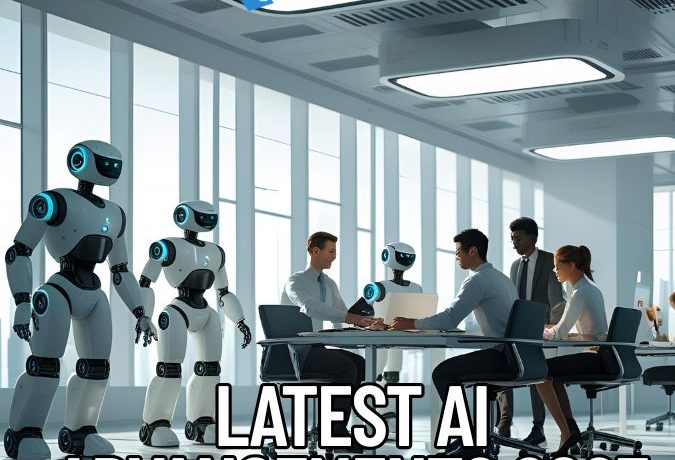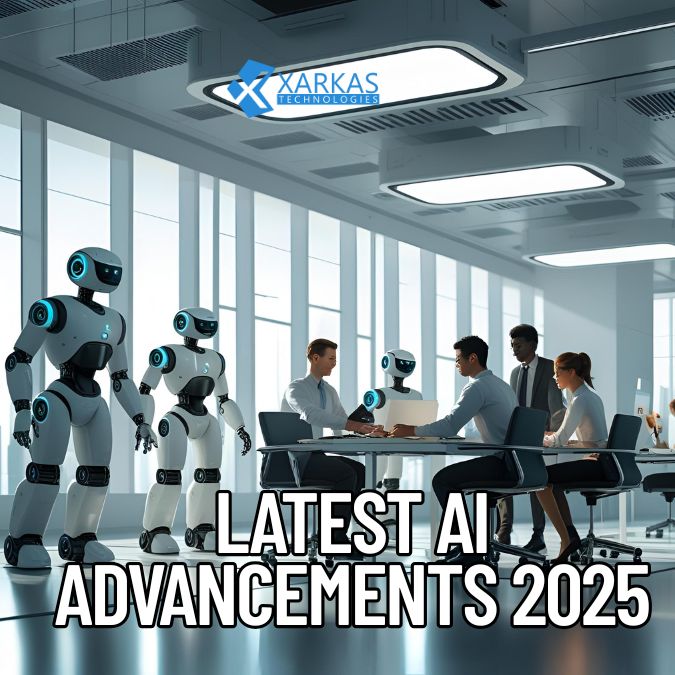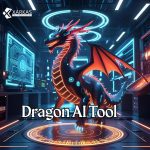
Latest AI Advancements 2025: Transforming the Future of Technology
Table Of Content
- Revolution in Generative AI: Beyond Imagination
- AI-Driven Healthcare Diagnostics and Drug Development
- Autonomous Agents and Decision-Making AI in Business Operations
- Advanced AI in Cybersecurity: Proactive Threat Detection
- AI and Robotics Integration: Smarter, Safer Machines
- Ethical AI and Regulation: A Global Standard Emerges
- AI-Powered Education Platforms: Hyper-Personalized Learning
- AI in Transportation: Smarter Mobility, Safer Roads
- AI for Creative Industries: New Era of Digital Art and Content
- Conclusion: The AI-First World of 2025
The year 2025 marks a significant turning point in the evolution of artificial intelligence. With a surge of innovation, the world is witnessing a revolutionary phase where AI is no longer just a tool, but an autonomous ecosystem. The breakthroughs span across healthcare, finance, transportation, robotics, communication, and more. As leading industry pioneers, we explore the most impactful AI trends and technologies that are redefining possibilities.
Revolution in Generative AI: Beyond Imagination

One of the most dominant advancements in 2025 is in generative AI. The release of multimodal AI models has drastically improved how machines interpret and generate not just text, but also audio, video, and 3D content. Models like OpenAI’s GPT-4.5 and Google DeepMind’s Gemini Ultra demonstrate astonishing capabilities in natural language understanding, reasoning, and creativity.
Key Features:
-
Hyper-contextual understanding of user intent.
-
Real-time cross-lingual translation with emotion recognition.
-
Generation of realistic 3D simulations for gaming, film, and VR training.
-
Seamless integration with robotic control systems.
These models now self-adapt based on user behavior, enhancing personalization in education, marketing, and digital experiences.
AI-Driven Healthcare Diagnostics and Drug Development
In 2025, AI in healthcare has made phenomenal strides. The implementation of neuro-symbolic AI and quantum-enhanced machine learning is helping researchers achieve sub-millisecond diagnostics, especially in detecting cancers, neurological disorders, and infectious diseases.
Major Milestones:
-
AI systems like IBM Watson X and PathFinder AI now analyze genetic data in real time.
-
AI-assisted robotic surgery has surpassed human precision by over 18% in neurosurgical procedures.
-
Drug discovery cycles are reduced from 10 years to under 18 months, with predictive modeling using synthetic datasets.
Medical AI is not just assisting; it’s leading treatment planning with unmatched accuracy and speed.
Autonomous Agents and Decision-Making AI in Business Operations
Businesses in 2025 are being transformed by autonomous AI agents capable of handling end-to-end workflows. These agents function as virtual executives, making strategic decisions in areas like supply chain management, HR operations, and financial forecasting.
Business AI Capabilities:
-
Self-learning finance bots generate quarterly financial reports with live data integration.
-
Customer success AI handles CRM, follow-ups, and sentiment analysis autonomously.
-
AI co-pilots for CEOs provide decision simulations for better risk mitigation.
Companies adopting these solutions report an average of 32% operational efficiency boost.
Advanced AI in Cybersecurity: Proactive Threat Detection
As cyberattacks grow in complexity, AI has become the first line of defense in 2025. AI-based cybersecurity tools now offer predictive protection, using deep reinforcement learning to detect anomalies before they become threats.
Latest Innovations Include:
-
Zero-trust AI firewalls that adapt based on behavioral data.
-
Decentralized AI security protocols on blockchain infrastructure.
-
AI honeypots that automatically identify and isolate malicious actors in milliseconds.
Major enterprises are using these tools to achieve 99.9% threat neutralization accuracy, even for sophisticated zero-day attacks.
AI and Robotics Integration: Smarter, Safer Machines
With the fusion of AI and robotics, 2025 introduces adaptive robots that learn continuously from their environments. These intelligent systems are transforming manufacturing, agriculture, disaster response, and space exploration.
Breakthroughs in Robotic AI:
-
Exo-intelligent prosthetics that sync with neural signals in real-time.
-
Farming bots that analyze soil and weather data to optimize crop cycles.
-
Humanoid service robots powered by LLMs for hospitality and elderly care.
-
NASA’s AI-integrated Mars rovers conducting autonomous terrain analysis.
These machines are no longer tools but intelligent collaborators.
Ethical AI and Regulation: A Global Standard Emerges
The ethical use of AI is no longer optional—it’s embedded. In 2025, global AI regulations have standardized frameworks for data privacy, transparency, accountability, and bias mitigation.
Key Developments:
-
AI Rights Charters signed by over 90 countries to govern AI-human interactions.
-
Introduction of Explainable AI (XAI) systems that provide rationale for decisions.
-
Ethics-aware design frameworks mandated in enterprise AI solutions.
-
AI audit trails for traceability in sensitive sectors like law and finance.
These frameworks ensure AI remains a force for good, promoting trust and inclusivity in digital systems.
AI-Powered Education Platforms: Hyper-Personalized Learning
AI is reshaping education by delivering adaptive, inclusive, and interactive learning experiences. In 2025, learning platforms are using cognitive AI to customize content delivery for every individual based on learning speed, interest, and neurological patterns.
Notable Features:
-
AI tutors offering real-time feedback and exam simulation.
-
Neurofeedback integration to adjust lesson difficulty dynamically.
-
Gamified curricula with VR/AR modules powered by generative AI.
-
Support for over 200+ languages with cultural nuance.
Education is no longer one-size-fits-all. It’s one-AI-fits-you.
AI in Transportation: Smarter Mobility, Safer Roads
Autonomous transportation systems powered by AI and edge computing have achieved commercial viability. In 2025, major cities have embraced Level 5 autonomous vehicles, AI-controlled public transport, and predictive traffic systems.
Key AI Integrations:
-
Self-driving fleets coordinated by swarm AI algorithms.
-
AI air-traffic systems reducing mid-air collision risk by 99.8%.
-
Smart traffic lights that respond to real-time congestion data.
-
Predictive maintenance systems in rail and aviation reducing downtime.
With AI at the wheel, the world is moving towards accident-free, zero-emission transportation.
AI for Creative Industries: New Era of Digital Art and Content
In 2025, AI is revolutionizing music, film, advertising, and content creation. With tools like Sora by OpenAI and Runway Gen-3, creators can now design cinematic-quality videos, artwork, and music tracks with minimal input.
Creative AI Features:
-
Text-to-video tools for instant storytelling.
-
AI music generators composing soundtracks in custom genres.
-
AI voice cloning for multilingual dubbing in content localization.
-
Style transfer AI for replicating classic art techniques digitally.
Creativity is no longer limited by tools; it’s enhanced by AI co-creators.
Conclusion: The AI-First World of 2025
The latest AI advancements in 2025 are not merely enhancements—they’re paradigm shifts. As AI becomes deeply embedded in every aspect of life and industry, those who embrace its potential will lead the future. From solving global challenges to personalizing daily experiences, AI is not just advancing. It is evolving us.







No Comment! Be the first one.